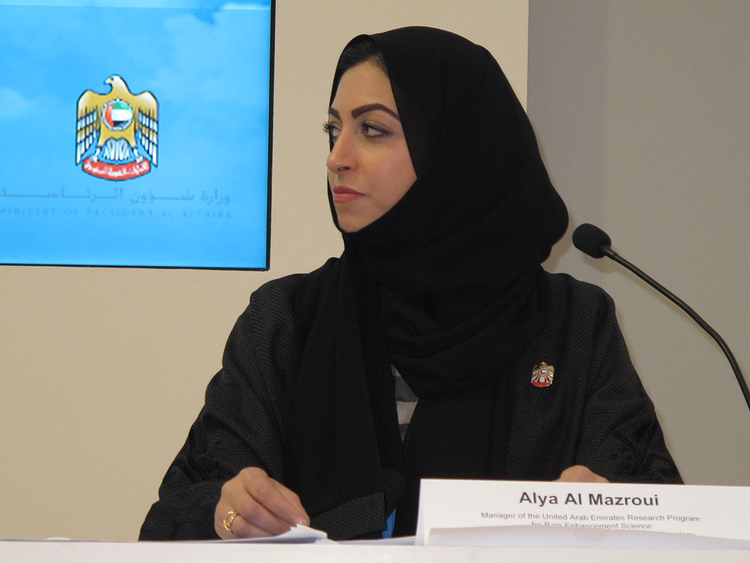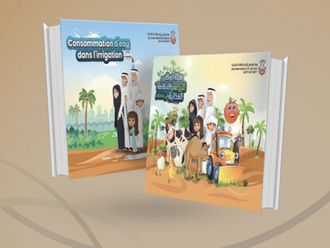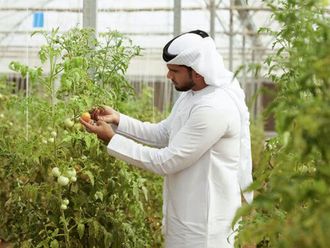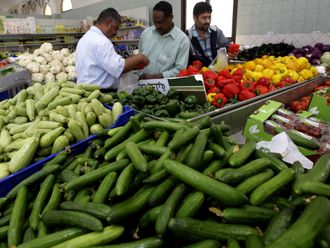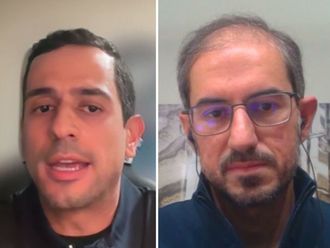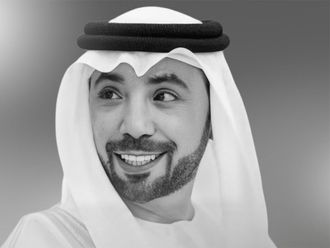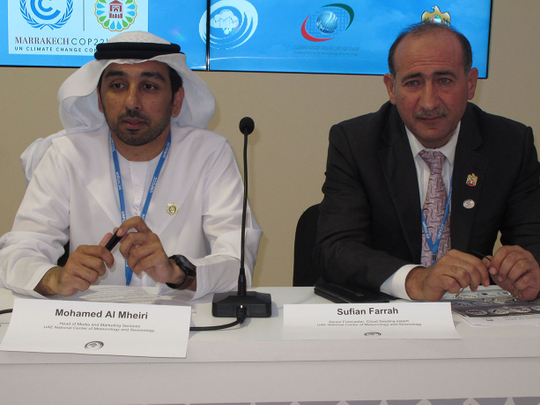
Marrakech: Cloud seeding data will go under the microscope in a first international workshop in the new year, announced senior officials of the UAE Research Program for Rain Enhancement Science attending the UN Climate Change Conference in Marrakech.
Armed with its encouraging data showing a 20-30 per cent increase in rainfall from cloud formations over the UAE that were seeded with environmentally friendly salts via aircraft, officials say the workshop could help arid countries around the world take the best information forward to boost natural water supplies and reduce water shortages.
Alya Al Mazroui, Manager of the UAE Research Program for Rain Enhancement Science, told Gulf News in an interview that for countries experiencing depleted underground natural aquifers, natural rainfall is the best way to replenish wells and standing sources of water.
Data gleaned from scientists and researchers who are selected for the program's $5 million annual award is aimed at helping “solve global water challenges” by sharing it with other countries, she said.
Every January, the programmeannounces up to five successful proposals which share the research dollars.
Selected applicants are studying everything from varying materials to nanotechnology to encourage water held in clouds to be released in the form of droplets.
The program is entering its third cycle in 2017.
Al Maroui said the program is seeking to “advance state-of-the-art rainfall practices and operations not only in the region but globally.”
In time, the research could help water-challenged nations “gain a better fundamental understanding of rainfall enhancement,” she said.
Managed by the National Centre of Meteorology and Seismology in Abu Dhabi, the rainfall program involved 398 researchers and 180 institutions from 45 countries this year.
Mohamed Al Mheiri, Head of Marketing Services at the national weather centre, said there are high hopes for the success of the new workshop and the continuing research.
“We believe it can be implemented in all Arab regions. I believe rain enhancement could tackle water scarcity,” he said.
Sufian Farrah, cloud seeding expert at the weather centre, said that there were 40 seeding operations so far in 2016 given a cloudy winter season showed higher prospects for rainfall enhancement.
All things being equal, Farrah noted that monitoring around the world shows that seeding practices do not always yield the same results, hence the need for better study.
“There are conflicts of results, the reason is clouds are very complicated,” Farrah said.
Dr. Jolly Wasambo, project coordinator with the African Union Commission, said many countries could benefit from improved scientific results stemming from the UAE's efforts.
“Within the African continent, we view Climate Change as a threat. We welcome this technology very much” Wasamo said.
Maxx Dilley, a director with the Climate and Water Department of the United Nation's World Meteorological Organisation (WMO), said that after following seeding since its inception in 1945, “it's a complex area that requires a great amount of study.”
New data, Dilley said, “will be relevant in other areas for weather prediction and climate change.”


